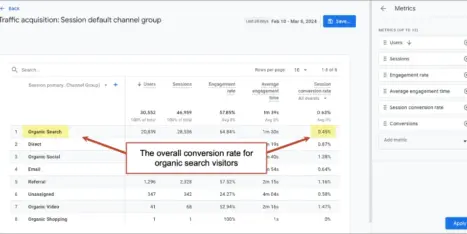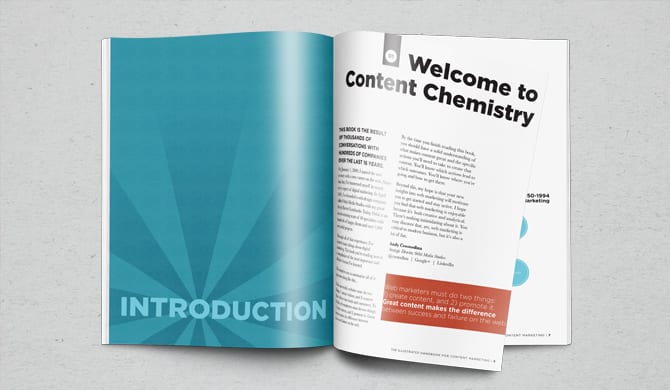A client once said that our landing page copy was too short to possibly rank.
They read a blog post. To thousands of SEOs, this post is law. It also happens to be dead wrong.
Long-form content. 10X content. Skyscraper content. It goes by many names.
This post by serpIQ went viral and it changed the industry. That site is now defunct, but the gist of the findings can be seen here:
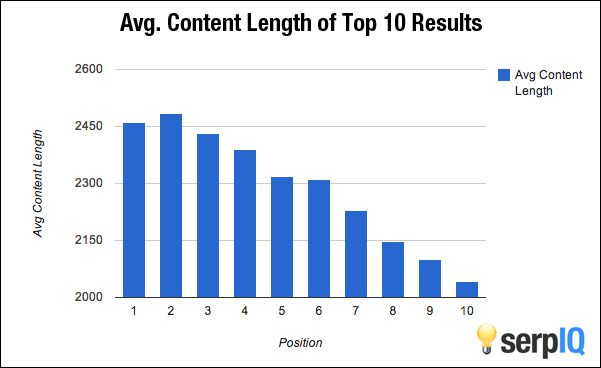
It suggests that there’s an ideal number of words for better rankings. Determined by correlation across many SERPs.
Do you believe that? Then please, move along.
That client of ours: I searched the target keyword for this landing page. We were chasing an aggressive (but attainable) ranking. I popped open the top 25 search results into 25 tabs. I pasted their copy into Google Docs to get their word counts and averaged them in a spreadsheet.
238.
238 words per page. Mostly homepages. The #1 ranking looked similar to google.com with under 50 words. The dedicated landing pages weren’t much longer. This occurred in the M&A space, which has no shortage of organic marketing budget.
I showed them this. They couldn’t be swayed. I also showed them hundreds of #1-position, 2-word rankings that we’d held long-term. More of the same. We parted ways with that client.
This is what makes SEO so hard: too many bad sources of information.
I know what you’re thinking. At least, it got me thinking.
What’s the real ideal number of words for SEO?
Maybe if the conditions had been different – like, say, we were trying to rank an article instead of a B2B offer.
Maybe if we looked at the median and not the average.
Not many possess the big data needed for this type of study. It takes big resources to scrape all of Google or all of the web.
Moz has them. They looked at this too.
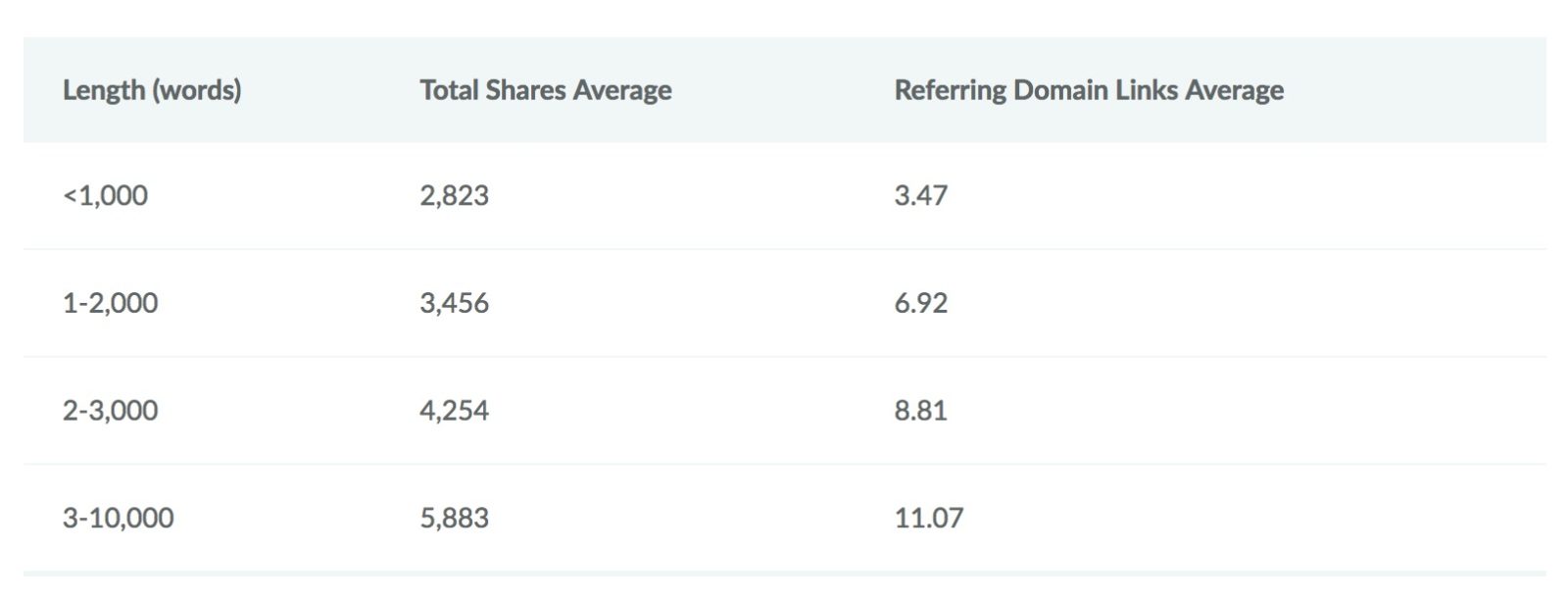
It looks like longer content tends to earn more links.
So maybe Google isn’t looking at word length at all. Maybe, just maybe, if you put more work into creating content, you put more work into promoting it, too?
I know that I would.
I know that I have, actually.
We have one 20,000-word article. It’s our longest. It skews the hell out of a study based on word count averages. It’s got custom jQuery filters, granular embed codes, and loads of strong, editorial links built towards it.
Do you know what else?
It’s not our most popular piece of content.
I wish that was a joke. Believe me. Do you know how much more time I spent writing and promoting 20,000 words? Our #1 performer took 20 minutes to create.

Our Google Ranking Factors fact check permanently elevated our search game. It’s been translated into at least 5 languages, earned hundreds of amazing links, and been promoted by “SEO celebrities” like Rand Fishkin, Barry Schwartz, and Martin MacDonald.
But it’s only our fifth most popular piece of content and that’s no thanks to Google.
What does it all mean?
What if the ideal length of content for SEO is the one that solves a problem best?
Coming from an SEO consultant, that sounds like a copout! It’s not as impressive as fancy graphs.
It’s still true.
Think about it. If a problem can be solved perfectly in two sentences, do you really want to read two thousand? Which resource would you be more likely to bookmark, link, or share with your colleagues?
The truth is that not all problems are the same. When the serpIQ study first appeared, we looked into it for all our clients. Thanks to all of the uncertainty that they caused, all those authoritative speakers and bloggers started dictating this to us as the new world order in SEO. Best of all, the major SEO crawlers added word count features, so it’s easy for you to prove wrong. That’s just what we did across our client roster.
At over 30 major brands, not one of them had their longest content performing in their top 5. For most, those pieces didn’t even appear in their top 20.
Go ahead. Take a look at your own content. I bet that you’ll find the same.
Too lazy for that? Fine. I can’t disclose the data from each of our agency clients, but I’ll gladly show you ours.
We produce plenty of “epic” pieces here. Overall, plenty do well. Here’s a complete crawl of our site sorted by the most word-filled pieces.
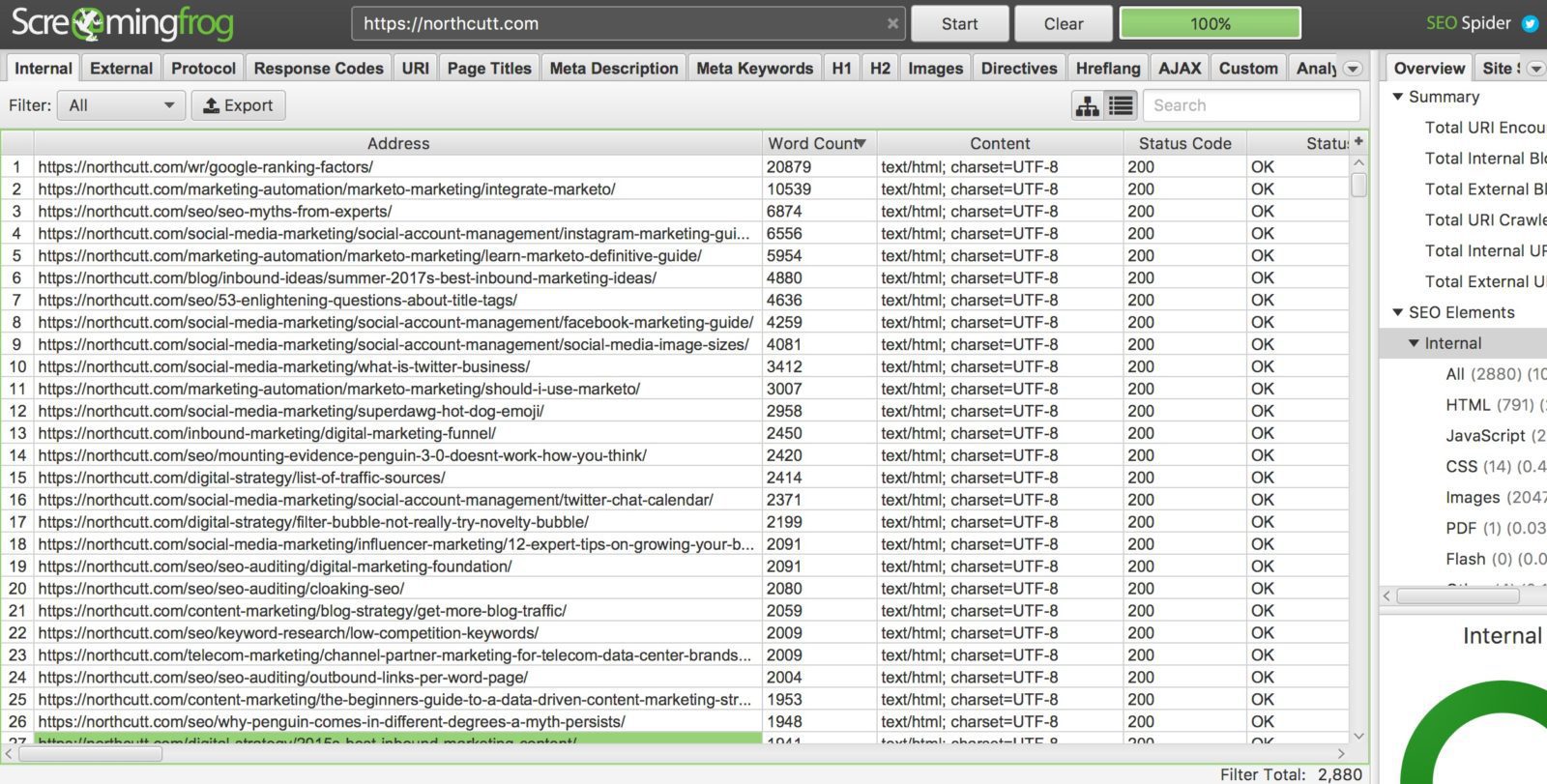
I can slice our Google Analytics data using Advanced Segments to track only organically acquired sessions.

Check this out.
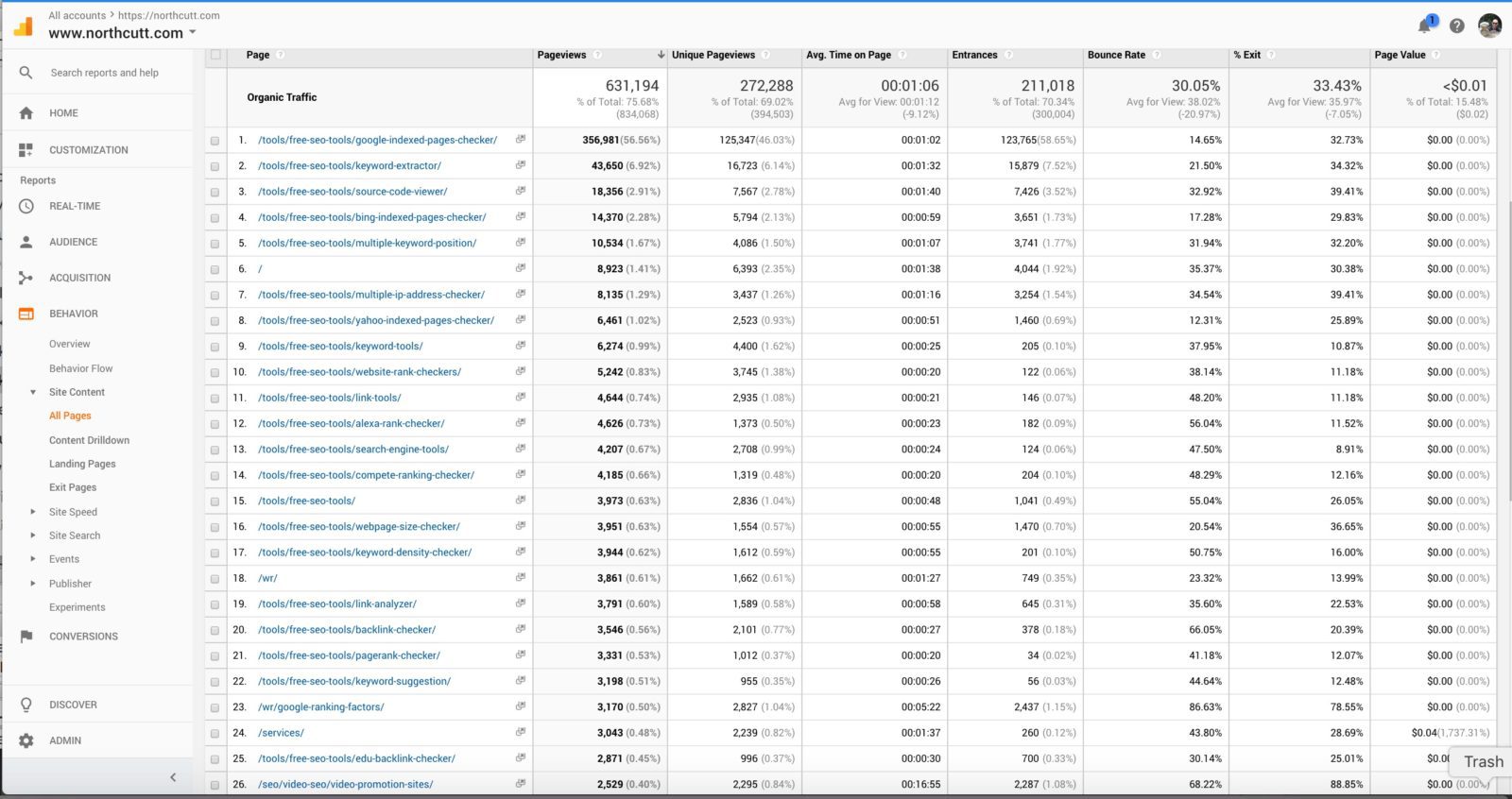
It’s all dumb SEO tool linkbait without much copy. In part, because it’s a blue ocean; most SEOs have marketing degrees instead of IT degrees so there’s less competition. Only when we get to #26 in Google Analytics do we see a blog post. It’s not among our 26 longest articles either.
It’s just a short list of websites.
Plenty of our blog posts draw thousands of eyeballs year after year. There’s no correlation to content length.
Go ahead: try this on your website. We’ve looked at dozens and the result is has been the same every time. Across all of Google Search, on average, longer content is performing better. Google Analytics pretty much never replicates that, though, and practicing SEOs all know it.
If cognitive dissonance is making your head explode right now, let me explain it another way. These are different datasets and everything above can be true at once.
Google Analytics reveals the success of short vs. long content production within one website. Since you optimize websites one at a time, that’s what matters for you.
The serpIQ study does not. More words implies that more overall effort has been made. Also, not all search queries work the same. Generic correlation #s are ruined by these facts (among others).
The Takeaway
Longer content doesn’t guarantee rankings. Shorter content isn’t kept from them. People rag on churning out badly written 500-word posts in this age and rightfully so. You can’t Fiverr your way to the top anymore.
Related Content: How Long Does SEO Take To Work?
Content should be as long as a problem merits. One legit insight from serpIQ’s data can be made: we’re no longer living in a world where just putting a few words on a page seals you #1 rankings.
You need to solve a particular searcher’s problem best. That’s it. When you do, most other factors work in your favor. Google only has one goal, really: reward the publisher that provides the most popular, relevant, and enjoyable experience.
They’re often not great at doing that. Very much not. But Google’s end game isn’t a secret. It aligns with effort, not word salad.
If you focus on length over giving the best answer, you’re swimming upstream. Sometimes the best answer is 50 words. Sometimes it’s 50,000. At one time, Google would only index the first 200 words of a page, which became 10MB in 2015, which became 100MB in 2017. So long as your overall ratio of thin content isn’t an issue and pages load fast, content length doesn’t matter much anymore.
In my experience, solving the problem behind most search queries is done best between 500 and 2,500 words. More often on the lower end. If you can write more while still offering value and staying on point, do it.
It’s a mistake to cut your content at exactly 500 words.
It’s also a mistake to try and hit an epic length. Those correlation studies don’t tell you the whole story. Experience and watching your analytics will. The web is littered with 10,000-word articles that nobody will ever see.
Content length doesn’t matter for rankings. Better content does.

